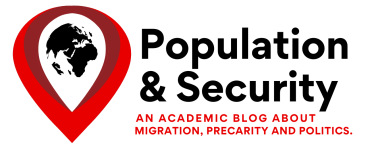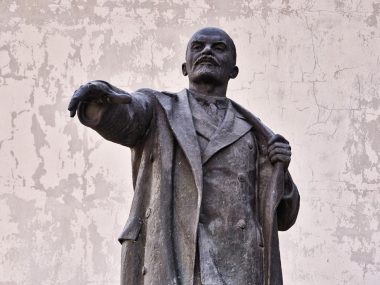One of the most interesting—and perhaps expected—outcomes of the European elections held from June 6th to 7th, 2024, was the rise of The European Conservatives and Reformists (ECR), a coalition of Eurosceptic, right-wing parties. These results are considered a new chapter for the European Union (EU) as the ECR is now the fourth largest political group in the European Parliament with 78 seats.
The recent experience of the EU is particularly revealing, for if the 27 countries of the EU that aims for integration on all levels face a growing opposition to immigration, other countries that are also experiencing high levels of immigration, such as Canada, could also see a similar surge in far-right parties. What then are the roots of the far-right movement in the EU, and what effect did it have on xenophobia?
How Far is Far Right?
If one aims to understand the political roots and societal effects of xenophobia, it is important to look at the actions and rhetoric of far-right parties that usually employ racist discourse, forming the basis for widespread prejudice.
Some far-right parties are considered part of the new right movement. Unlike the old right, which emphasized an economic agenda, the new right focuses on post-materialist values, such as nationalism and traditional values. In the European context, far-right political parties are not extremists but radicals, meaning they question key aspects of the constitutional order without seeking to abolish the system. Right-wing variants of these radical parties mostly view inequality as the natural and inevitable order, aligning them with conservative ideologies. Research suggests that far-right parties aim to create an authoritarian system based on this natural order of inequality.
The main examples of far-right parties in the European Union member states include the Freedom Party of Austria (FPÖ), the National Rally (RN) of France, the Italian National Alliance (AN), Lega Nord (LN), and Alternative for Germany (AfD). When looking at the party manifestos of European far-right parties, we see that they emphasize political authority, law and order, discipline, patriotism, the importance of traditions and moral values (post-materialist values), intolerance for minorities and anti-immigrant sentiments, combined with strong neo-liberal elements.
Far-Right Agendas and Politics
The agendas of far-right parties are composed of three main components: I) dislike towards elites, II) populism, and III) nationalism. The far-right movement perceives elites (i.e. economic upper class, the media, intellectuals, etc.) as responsible for the “country’s ills” as they promote individualism, multiculturalism, and internationalism. The influence of the elites is believed to keep the general populace away from power, resulting in the populist rhetoric of far-right parties gaining traction in politics. For the most part, far-right parties promote xenophobic ideas, portraying the traditions and values of “outsiders” as fundamentally different from locals. As a result, it is very common for far-right parties to have anti-immigrant agendas. However, to define them as only anti-immigrant parties would not be very accurate since the agendas of far-right political parties vary in context and encompass many different aspects of political life.
Understanding the Rise
The rise of far-right parties can be explained through grievances, namely modernization grievances, economic grievances, and cultural grievances. Grievance theory suggests that people’s political actions are caused by issues of identity.
Modernization Grievances
Some argue that people may choose to support far-right parties because of grievances that occurred during modernization processes, such as the emergence of democracy, the transition from a socialist to a capitalist system, or the shift to post-materialist values. Far-right parties provide a response to the insecurities arising from people’s anger and anxiety. Although this approach helps explain the rise of the far-right in Eastern Europe, it is insufficient for explaining the cases in Western Europe, including Germany or Austria.
Economic Grievances
An important explanation for the stance against immigration is the economic grievance theory. Typical voters of far-right parties are young men with low levels of education who are either unemployed or working in manual labour. They mostly compete with immigrants for economic gains, resulting in grievances among the native population. Another key factor behind these economic grievances is the perception that unemployment is high because of immigration rather than the labour market in general. This belief increases the chance for far-right parties to gain support.
Cultural Grievances
According to the social identity theory, individuals tend to associate with those who are similar to them, and because of self-esteem issues, people often perceive their own groups as superior to others. This dynamic can explain why people vote for far-right political parties, which are generally anti-immigrant because of their attitudes towards “outsiders” and mostly propose a higher standing for the natives.
Conclusion
Given that the rise of far-right parties becomes more evident across European politics, it is undeniable that the repercussions will extend beyond Europe to every country the EU has relations with. Thus, understanding the reasons behind this trend is important. This includes modernization, economic, and cultural grievances.
But what are the political outcomes of this trend? The far-right’s anti-immigrant attitudes can cause problems regarding integration and even acceptance of Ukrainian refugees after the Russo-Ukrainian War. The growing influence of the ECR in the European Parliament can also suggest that their political agendas, such as climate policies, might get more attention at the expense of more progressive initiatives from The Greens/European Free Alliance. Furthermore, the EU’s Enlargement project, which sets the conditions for membership, may see a slowdown in the accession of candidate countries as far-right parties gain political leverage, jeopardizing the expansion of the European Union. Together, this underscores that the rise of far-right political parties is a risk, not only to European integration, but also to broader aspects of globalization and immigration policies.








